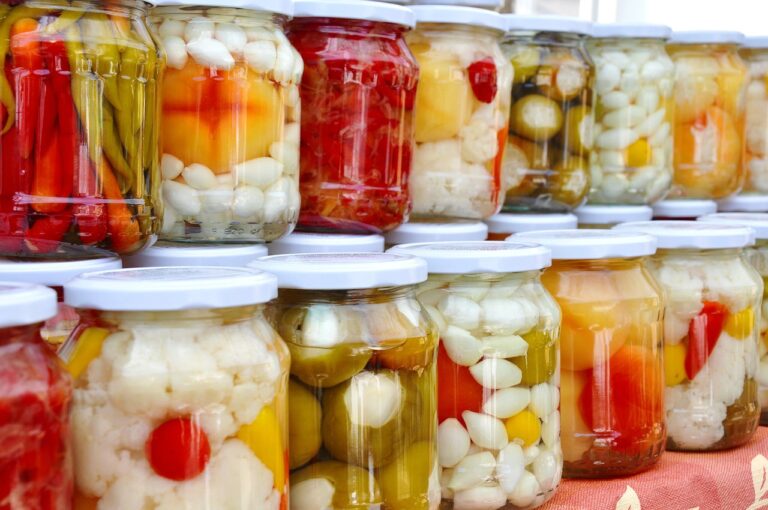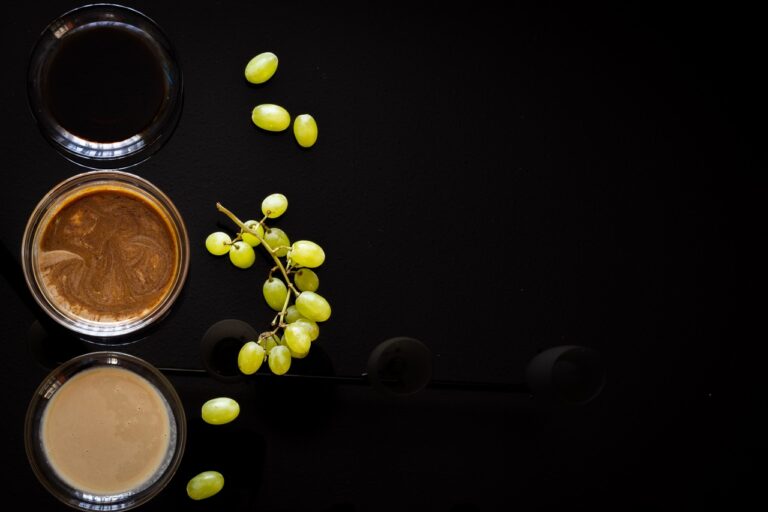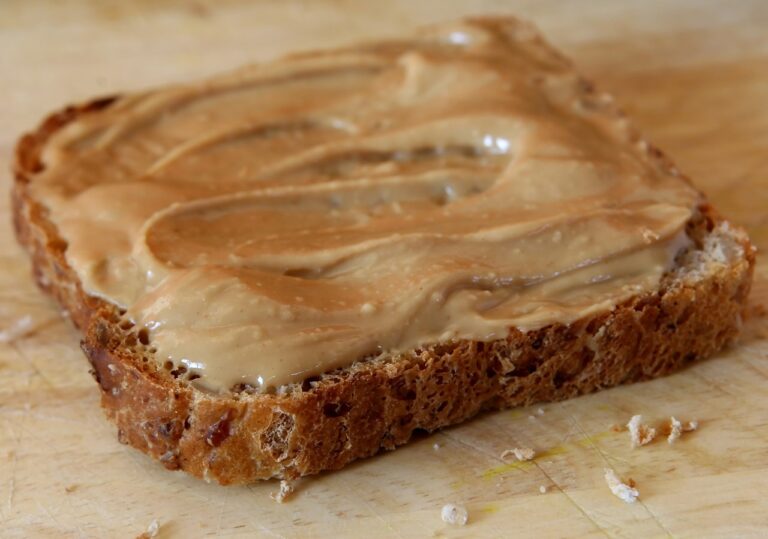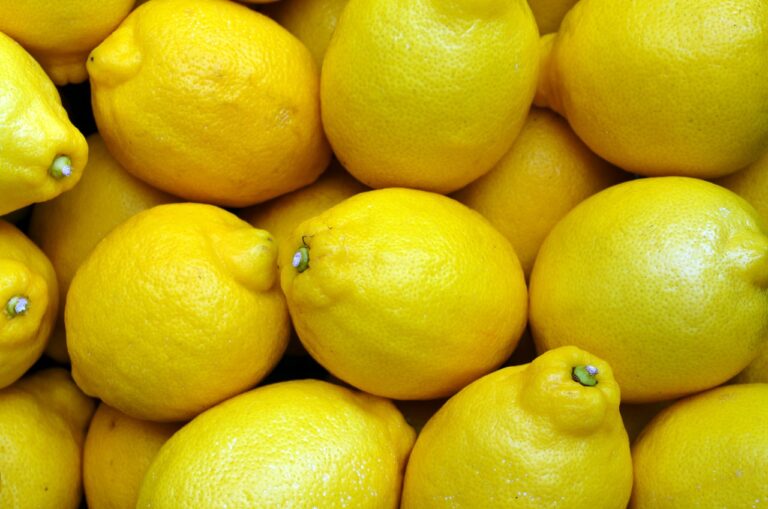9 Interesting Reasons Why You Are Craving Salt
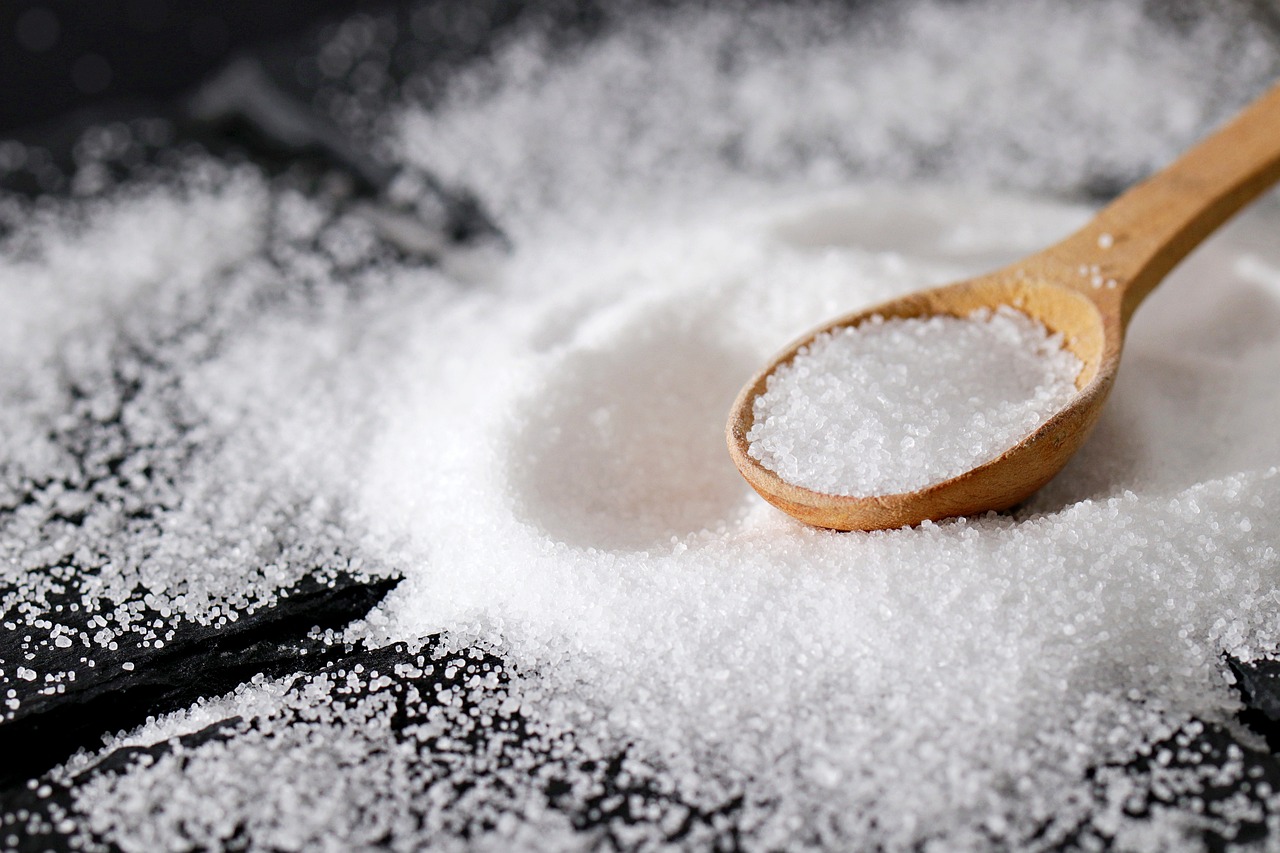
Salt, chemically known as sodium chloride, has been a cherished seasoning for thousands of years, enhancing the flavors of our meals. Beyond its culinary purposes, it’s essential for various physiological processes in our body. Craving salt can sometimes be a mere desire for a salty treat, but at other times, it may signal something more significant about our health or dietary habits. This article will explore ten reasons why we might crave salt.
Why Am I Craving Salt?
1. Dehydration
The body’s way of retaining water
When we’re dehydrated, our body seeks ways to retain water, and sodium plays a pivotal role in this process. Consuming salt can increase thirst, leading us to drink more, helping the body rehydrate.
Impact of intense physical activity
After intense physical activity, we lose both fluids and salts through sweat. Thus, a post-workout salt craving might simply be the body’s way of trying to rebalance its electrolytes and fluids.
2. Electrolyte Imbalance
The role of sodium in balance
Sodium, along with other minerals like potassium and calcium, is essential for maintaining our body’s electrical balance. An imbalance, particularly a deficiency in sodium, can trigger a salt craving.
Causes of imbalances
Dehydration, kidney issues, or consuming an imbalanced diet can lead to an electrolyte imbalance, resulting in the body craving more sodium to restore harmony.
3. Adrenal Insufficiency
Adrenal glands and sodium regulation
The adrenal glands produce a hormone called aldosterone, which helps regulate sodium levels in the body. When these glands are under-functioning, sodium regulation can be compromised.
The connection to salt cravings
With reduced aldosterone production, the body may lose more sodium through urine, leading to a potential salt deficiency and subsequent cravings.
4. Diet and Food Habits
Processed foods and hidden salt
Many processed foods are laden with hidden salt. Regularly consuming these foods can train the palate to prefer salty tastes, leading to more cravings.
Break in regular salt intake
If someone drastically reduces their salt intake, the sudden change might result in temporary cravings as the body adjusts to the new level of sodium consumption.
5. Menstrual Cycle
Hormonal fluctuations and cravings
Hormonal changes during a woman’s menstrual cycle can lead to various cravings, including the desire for salty foods.
Water retention and salt
Salt can help with water retention, which might be beneficial in alleviating some menstrual symptoms, leading to an increased desire for salty foods during this time.
6. Stress
The comfort of salty foods
For many, salty foods like chips or pretzels are comfort foods. During times of stress, reaching for these familiar snacks can be soothing.
Physiological responses to stress
The body’s physiological response to stress might also lead to an increased desire for salt, as the adrenal glands (involved in the stress response) play a role in sodium regulation.
7. Pregnancy
Hormonal shifts and cravings
Pregnancy brings about a plethora of hormonal changes which can result in various food cravings, including salt.
Increased blood volume and sodium
During pregnancy, there’s an increase in blood volume. This requires more sodium, potentially leading to salt cravings.
8. Lack of Minerals
Beyond sodium
Salt cravings might not always be about sodium alone. The body might be signaling a deficiency in other minerals commonly found alongside sodium, such as chloride or magnesium.
Natural sources of minerals
Incorporating a variety of mineral-rich foods in the diet, like leafy greens and nuts, can help address these deficiencies and potentially reduce salt cravings.
9. Genetic Predisposition
Taste preferences from birth
Some people might be genetically predisposed to prefer salty foods due to differences in their taste receptors.
Innate desire for balance
Our bodies have evolved to seek out certain flavors and nutrients to maintain balance. A natural inclination towards salty foods might be rooted in genetics, ensuring we get enough sodium for essential bodily functions.
Craving For Salt And Spice
Craving for salt and spice often indicates a desire for intense flavors, possibly as a way to enhance sensory experiences during meals. Such cravings can be linked to the body’s need for certain minerals, like sodium, which is essential for fluid balance and nerve function. Psychological factors, including stress and boredom, can also trigger these cravings as spicy and salty foods may offer a temporary emotional lift.
After every three sentences, there’s a space to provide a clear distinction between the reasons. It’s important to consider that habitual dietary patterns can influence taste preferences, leading individuals to crave what they commonly consume. Additionally, cultural and environmental factors can play a significant role in shaping one’s craving for salt and spice, as these tastes are prevalent in various cuisines around the world. Lastly, a lack of variety in the diet may lead to specific cravings as the body seeks to fulfill its nutritional and psychological needs through specific food choices.
Craving Garlic Salt
Craving garlic salt may be indicative of a body’s need for more flavorful food, but it can also suggest a deficiency in certain nutrients like allicin, found in garlic, which has numerous health benefits. Garlic salt combines the taste-enhancing properties of salt with the distinct flavor of garlic, which could satisfy both taste and potential nutritional needs. This craving might also stem from an unconscious desire to boost the immune system, as garlic has antimicrobial and anti-inflammatory properties.
By introducing a space, the discussion separates into multifaceted reasons behind the craving. It’s worth considering that cravings for specific flavor enhancers like garlic salt can be attributed to habit or emotional eating, where the combination of salt and garlic provides a comforting or familiar taste experience. Additionally, such cravings might reflect an individual’s cultural or familial dietary preferences, where garlic salt is a staple seasoning. Finally, the body’s natural inclination towards seeking variety in food could lead to a craving for something distinct and flavorful, making garlic salt a prime target for cravings.
Craving Himalayan Salt
Craving Himalayan salt, known for its trace minerals and perceived health benefits, may signal the body’s intuitive search for nutrients lacking in a standard diet. The distinct pink color and unique mineral content, including potassium, magnesium, and calcium, might be what the body seeks for balance and optimal functioning. Himalayan salt is also thought to create an electrolyte balance, hydrate, and reduce muscle cramps, which could be why it’s particularly craved.
After a brief pause, it’s essential to recognize that such cravings could be driven by the aesthetic and culinary appeal of Himalayan salt, beyond just its health benefits. The increasing popularity of Himalayan salt in wellness circles may also influence individuals to crave it, believing it to be a healthier alternative to regular table salt. Furthermore, the sensory experience of consuming Himalayan salt, known for its distinct texture and taste, can satisfy a desire for a more gourmet or exotic flavor profile in everyday meals.
Craving Salt After Running
Craving salt after running is a natural response to the loss of sodium and electrolytes through sweat during physical activity. This craving serves as the body’s way of signaling the need to replenish essential minerals to maintain fluid balance and prevent dehydration. The intense physical exertion from running increases the demand for sodium, which is crucial for muscle function and blood pressure regulation.
By taking a moment to separate the reasons, it becomes clear that such cravings are not just about replenishing lost sodium but also about rewarding oneself with savory flavors after a workout. Additionally, the psychological aspect of craving salty foods after running could be linked to the body’s natural reward system, where salt acts as a quick source of pleasure and satisfaction. Lastly, habitual dietary patterns play a role, as individuals who regularly consume saltier foods might experience more intense cravings after physical activities due to their body’s accustomed sodium levels.
Craving Salt And Carbs
Craving salt and carbs often points to the body’s demand for quick energy and the replenishment of glycogen stores, especially after physical exertion or during times of stress. Carbohydrates provide the primary energy source for the body’s functions, while salt helps to maintain fluid balance and nerve transmission. This combination can be particularly appealing when the body seeks comfort or a mood lift, as both salty and carbohydrate-rich foods trigger the release of pleasure-inducing neurotransmitters.
Introducing a space allows for a deeper exploration of the underlying causes. Emotional eating can significantly influence cravings for salt and carbs, as these foods are commonly associated with feelings of comfort and satisfaction. Furthermore, these cravings might indicate a dietary imbalance, where the body is compensating for a lack of essential nutrients found in more balanced meals. Finally, societal and environmental factors, including exposure to food marketing and the availability of processed foods, can exacerbate cravings for salty and carbohydrate-heavy options, making them more prevalent.
Craving Salt And Ice
Craving salt and ice might seem unusual, but it can indicate specific bodily needs or conditions. The combination of a desire for salt and the texture of ice could point to iron deficiency anemia, where the body seeks non-food substances (a condition known as pica) alongside essential minerals like sodium. Chewing ice may also provide relief from oral inflammation or fulfill a sensory need for crunching, while the craving for salt accompanies the body’s effort to balance electrolytes.
After delineating these factors, it’s critical to consider that such cravings might also be driven by habit or the psychological comfort found in the act of chewing ice, possibly as a method of stress relief. Additionally, the unique combination of craving salt and ice could be linked to specific dietary deficiencies or hydration needs, where the body signals for both mineral replenishment and increased water intake through the act of consuming ice. Lastly, environmental or lifestyle factors, including exposure to hot climates or engaging in activities that induce sweating, can heighten the body’s demand for salt and the cooling sensation provided by ice.
Craving Salt And Lemon
Craving salt and lemon is often a response to the body’s need for electrolytes and vitamin C, essential for immune function and energy levels. The sharp taste of lemon combined with salt can stimulate salivation and digestion, making this craving beneficial for those seeking to enhance their appetite or aid in nutrient absorption. This combination can also be refreshing, providing a sensory experience that satisfies both taste and smell.
Introducing a break allows for further contemplation of the causes behind such cravings. Psychological factors, including the association of salt and lemon with certain foods or cultural practices, can play a significant role in these cravings. Moreover, the body’s natural craving for diverse flavors and nutrients might manifest in the desire for the contrasting tastes of salt and lemon. Lastly, environmental factors, such as exposure to warmer climates or dietary habits emphasizing fresh ingredients, can influence one’s cravings for this tangy and salty combination.
Craving Salt And Orange Juice
Craving salt and orange juice may reflect the body’s intuitive effort to balance electrolytes and hydrate, as well as to replenish vitamin C and other antioxidants. The salty taste can satisfy mineral deficiencies, while the citrusy sweetness of orange juice offers a quick energy boost and enhances mood. This craving could also indicate a desire for a combination of flavors that are both refreshing and satisfying.
By pausing here, we can explore additional reasons. The craving for salt and orange juice might stem from specific dietary habits or deficiencies, where the body seeks to correct imbalances through cravings. Psychological factors, such as the association of these flavors with positive memories or feelings of well-being, can also influence cravings. Lastly, the sensory appeal of combining salty with sweet and acidic flavors can provide a unique and satisfying taste experience, driving the craving for this particular combination.
Craving Salt And Pickle Juice
Craving salt and pickle juice is often a sign of the body’s need for sodium and electrolytes, which are abundant in pickle juice. This craving can be particularly strong after workouts or in hot weather when the body loses more salt through sweat. Pickle juice also contains vinegar and probiotics, which can benefit digestive health and satisfy a craving for tangy, acidic flavors.
After a brief pause, additional factors come into play. Cravings for salt and pickle juice may also reflect an acquired taste or a preference for strong, savory flavors, which can be comforting or satisfying on a psychological level. Furthermore, these cravings might be linked to specific nutritional needs or deficiencies, as the body seeks out foods and drinks that can quickly replenish lost nutrients. Lastly, cultural or dietary habits, where pickle juice is a traditional remedy or snack, can influence one’s propensity to crave this salty, tangy liquid.
Craving Salt And Red Meat
Craving salt and red meat can indicate the body’s need for iron, protein, and zinc, nutrients that red meat is particularly rich in. Salt enhances the flavor of meat and increases saliva production, making the craving for this combination satisfying both nutritionally and palatably. This craving might also signal a deficiency in B vitamins, which are crucial for energy production and found in abundance in red meat.
By creating a separation here, it becomes evident that such cravings are not solely nutritional but can also be influenced by psychological factors, such as the comfort or satisfaction associated with consuming hearty, savory meals. Additionally, the craving for salt and red meat could be part of an evolutionary preference for high-energy foods, which provide the calories and nutrients necessary for optimal functioning. Finally, cultural influences and dietary habits play a significant role, as the consumption of red meat is deeply ingrained in many cuisines and traditions, potentially affecting one’s cravings.
Craving Salt And Sugar
Craving salt and sugar simultaneously could be the body’s way of seeking a balance between electrolytes and energy. This combination satisfies both the need for quick energy, provided by sugar, and the replenishment of sodium lost through daily activities. The craving for salty and sweet flavors together can also stimulate the reward centers in the brain, leading to a sense of pleasure and satisfaction.
After delineating these points, it’s important to recognize that cravings for salt and sugar may also reflect emotional eating patterns, where individuals turn to food for comfort or stress relief. Moreover, such cravings can be influenced by dietary deficiencies, where the body seeks to compensate for lack of nutrients through specific food choices. Lastly, the influence of food marketing and availability cannot be underestimated, as processed foods often combine salt and sugar, making these cravings more common in modern diets.
Craving Salt And Vinegar
Craving salt and vinegar could stem from the body’s desire for the stimulating effects of acetic acid in vinegar, which can aid in digestion and appetite control. The combination of salt and the tangy taste of vinegar satisfies a complex flavor profile that can be both refreshing and invigorating. This craving might also be a sign of the body seeking to balance its pH levels or to detoxify, as vinegar is often associated with cleansing properties.
By introducing a space, further exploration into the reasons behind this craving reveals that it can be influenced by cultural dietary habits, where salt and vinegar are commonly used as seasonings. Additionally, the psychological aspect of craving tangy and salty flavors could be linked to the need for sensory variety or a specific mood enhancement. Lastly, habitual consumption of foods like salt and vinegar chips could lead to cravings, as the body becomes accustomed to and begins to seek out these specific tastes.
Craving Salt And Water
Craving salt and water is a clear indication of the body’s need for hydration and electrolyte balance. Salt plays a critical role in water retention and blood pressure regulation, making this craving vital for maintaining bodily functions. The desire for both salt and water could also be a response to dehydration or excessive loss of fluids through sweat or other activities.
After a brief separation, it’s essential to consider that such cravings might also signify an underlying health issue or imbalance that requires attention. Furthermore, the craving for salt and water together can be linked to dietary habits, where high sodium intake necessitates increased water consumption to maintain equilibrium. Lastly, environmental factors, such as exposure to heat or engaging in strenuous physical activities, can amplify the body’s demands for both salt and water to prevent dehydration and ensure optimal performance.
Craving Salt At Night
Craving salt at night may be related to fluctuations in stress hormones, which can affect appetite and cravings. As the body winds down, the need for comfort foods, often salty, can increase due to their association with relaxation and satisfaction. This craving could also be a result of the body’s natural circadian rhythm influencing hunger and appetite hormones differently at night.
By incorporating a space, we acknowledge additional reasons. Nighttime cravings for salt might also indicate imbalances in diet or nutrient deficiencies, as the body seeks to fulfill its needs before the day ends. Psychological factors, including boredom or habitual night snacking, can contribute to these cravings. Lastly, the consumption of salty foods at night might be driven by their perceived ability to promote better sleep, despite the potential for disruption to sleep quality.
Craving Salt During Period
Craving salt during a period is often due to hormonal fluctuations that affect taste preferences and appetite. The drop in estrogen and progesterone before menstruation can lead to water retention and bloating, making salty foods appealing for their potential to balance fluids. Additionally, the comfort and satisfaction derived from consuming salty foods can help alleviate mood swings and cravings induced by premenstrual syndrome (PMS).
Separating these points allows us to delve deeper. The craving for salt during this time might also be related to stress or emotional changes, where the body seeks food as a form of comfort or coping mechanism. Moreover, the increase in metabolic rate before menstruation could heighten cravings for high-energy foods, including those that are salty. Lastly, cultural and personal dietary habits can influence these cravings, as individuals turn to familiar and comforting foods during their period.
Craving Salt During Pregnancy
Craving salt during pregnancy is commonly attributed to the body’s increased need for sodium to support fluid volume expansion and blood pressure regulation for both the mother and the developing fetus. Hormonal changes during pregnancy can alter taste preferences, making salty foods more appealing. Additionally, some theories suggest that cravings during pregnancy, including for salt, might be the body’s way of signaling nutritional needs or deficiencies.
Introducing a space for further discussion, it’s important to consider that these cravings can also be influenced by emotional and psychological factors, where women may seek comfort in certain foods. The increased blood volume and changes in kidney function during pregnancy may also contribute to cravings for salt as the body seeks to maintain electrolyte balance. Lastly, cultural beliefs and the perception of certain foods’ benefits during pregnancy can influence cravings, leading to a heightened desire for salty foods.
Craving Salt In The Afternoon
Craving salt in the afternoon can be a response to the midday dip in energy levels and blood sugar, prompting a desire for salty snacks that can provide a quick energy boost. This craving might also be due to dehydration, as individuals often forget to hydrate adequately throughout the day, leading the body to crave salt to retain water. Additionally, the stress and fatigue accumulated from the morning’s activities can increase cravings for salty and savory foods, which are perceived as satisfying and comforting.
By pausing here, we can explore other factors. Afternoon cravings for salt can also be a sign of an imbalanced breakfast or lunch, where the body seeks to compensate for nutritional deficiencies or lack of satisfaction from earlier meals. Psychological factors, such as boredom or habit, can contribute to these cravings, especially if afternoon snacking is a regular part of one’s routine. Lastly, social and environmental cues, such as seeing others snack or the availability of salty foods, can trigger cravings during this time of the day.
Craving Salt In The Morning
Craving salt in the morning may indicate dehydration upon waking, as the body seeks to rebalance its fluid and electrolyte levels after a night’s sleep. This craving can also stem from low levels of sodium, which can drop overnight, prompting the body to seek salty foods to replenish its stores. Additionally, a high-carbohydrate meal the night before can lead to a drop in blood sugar by morning, making salty and savory foods more appealing.
Introducing a separation allows for further exploration. Morning cravings for salt could also be influenced by habit or preference, especially if one is accustomed to savory breakfasts. Psychological factors, such as needing a satisfying and energizing start to the day, can contribute to these cravings. Lastly, cultural influences and dietary habits play a role, as traditional breakfast foods in many cultures include salty items, which can shape morning cravings.
Craving Salt Spiritual Meaning
Craving salt from a spiritual perspective is often interpreted as a sign of cleansing or purification, as salt is historically associated with these properties. This craving might indicate a subconscious desire to release negative energies or emotions and to seek protection or grounding. Additionally, salt cravings are sometimes viewed as a signal of an energetic imbalance, where the body and spirit seek to rebalance and align.
After a brief pause, it’s important to recognize that such interpretations can vary widely across cultures and spiritual beliefs. The craving for salt as a spiritual signal might also reflect an intuitive push towards self-care and healing, suggesting the need for a more balanced and harmonious lifestyle. Lastly, from a metaphysical standpoint, craving salt could symbolize a deep-rooted need for grounding and stability in one’s life, pointing towards the importance of addressing both physical and spiritual well-being.
Craving Salt When Sick
Craving salt when sick can be the body’s way of fighting infection and replenishing electrolytes lost during illness, such as through fever or vomiting. Salt can help retain water and improve hydration, which is crucial for recovery. Additionally, the immune system may benefit from the antimicrobial properties of salt, making salty foods more appealing when battling illness.
By adding a space, we consider other factors. These cravings might also be driven by a decreased sense of taste, common in illnesses like colds or flu, where saltier foods can seem more flavorful. Moreover, comfort and familiarity play significant roles, as individuals often seek foods that provide a sense of comfort or nostalgia when feeling unwell. Lastly, specific health conditions or medications that affect fluid and electrolyte balance can intensify cravings for salt during periods of sickness.
How To Stop Craving Salt
To stop craving salt, one can gradually reduce sodium intake to adjust the palate and decrease dependency on salty flavors. Incorporating a variety of herbs and spices into meals can provide flavor without the need for excess salt. Staying hydrated is also crucial, as dehydration can often masquerade as salt cravings.
By introducing a break, additional strategies come into focus. Eating a balanced diet rich in fruits, vegetables, whole grains, and lean proteins can help fulfill nutritional needs and reduce cravings for salty foods. Mindful eating practices can help identify true hunger cues and differentiate them from cravings. Lastly, managing stress and getting adequate sleep can reduce the likelihood of emotional eating and cravings for salty foods.
Spiritual Meaning Of Craving Salt
The spiritual meaning of craving salt can encompass a desire for protection, purification, and spiritual grounding. Salt has been used in various cultures for its cleansing properties and to ward off negative energies. A craving for salt might reflect an individual’s subconscious need for spiritual cleansing or to protect against negative influences.
After a brief separation, it’s important to consider that such cravings might also symbolize a search for balance and stability in one’s life, spiritually and emotionally. The body’s physical craving for salt could be mirroring a deeper spiritual need for grounding and connection to the earth. Lastly, in the realm of metaphysics, craving salt can be interpreted as a sign that the body and spirit are seeking alignment and harmony, pointing towards the importance of addressing both physical and spiritual needs.
Suddenly Craving Salt
Suddenly craving salt can be a sign of dehydration or an electrolyte imbalance, as the body seeks to replenish sodium levels quickly. It might also indicate stress or fatigue, as adrenal glands use more salt during periods of high stress. Additionally, a sudden increase in physical activity can lead to increased sweat and salt loss, triggering cravings.
By pausing here, we delve into more reasons. Dietary changes or restrictions can lead to sudden cravings if the body perceives a sudden drop in sodium intake. Psychological factors, such as emotional eating or seeking comfort foods, can also manifest as sudden cravings for salt. Lastly, hormonal fluctuations, particularly in women, can cause sudden changes in taste preferences, leading to increased cravings for salty foods.
Vegetarian Craving Salt
Vegetarians craving salt might be experiencing a need for increased minerals, as some plant-based diets can be low in sodium and other essential nutrients. This craving could also indicate a lack of variety or flavor in their diet, prompting a desire for the taste enhancement salt provides. Additionally, protein-rich plant foods like legumes and nuts can be more enjoyable with a bit of added salt, making this craving a natural response to dietary preferences.
Separating these points, it’s worth considering that cravings can also stem from nutritional imbalances or deficiencies in a vegetarian diet, such as iodine, which is often added to table salt. Emotional and psychological factors, including stress and habit, can contribute to cravings for salty foods. Lastly, the social and environmental aspects of food choices, including the availability of tasty and satisfying vegetarian options, can influence cravings for salt as individuals seek to enhance the enjoyment of their meals.
Very Thirsty And Craving Salt
Being very thirsty and craving salt simultaneously can indicate significant dehydration, as the body requires both water and electrolytes to function properly. This combination of cravings could also be a sign of an electrolyte imbalance, where the body is specifically signaling for sodium to help retain the water it needs. Certain conditions, such as adrenal insufficiency or Bartter syndrome, can cause these symptoms, requiring medical attention.
By introducing a space, additional considerations emerge. Dietary habits, particularly high sodium intake, can lead to both thirst and salt cravings as the body attempts to balance fluid levels. Intense or prolonged physical activity, especially in hot climates, can exacerbate fluid and electrolyte loss, leading to increased thirst and a desire for salty foods. Lastly, certain medications can affect hydration status and electrolyte balance, contributing to these cravings and the need for increased fluid intake.
Conclusion
Understanding the myriad reasons behind salt cravings can empower us to make informed dietary choices and address any underlying health concerns. While occasionally indulging in a salty snack might be harmless, consistently strong cravings could indicate a need for medical attention or dietary adjustments. Recognizing the difference is the key to maintaining optimal health and well-being.

